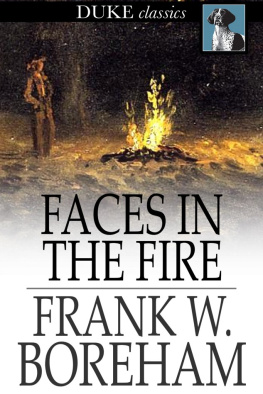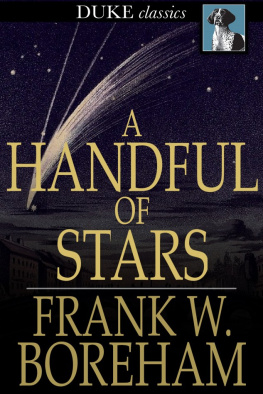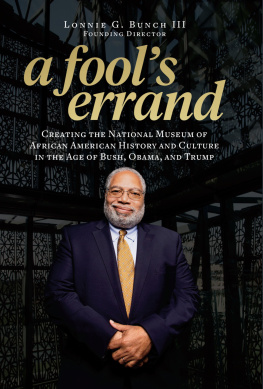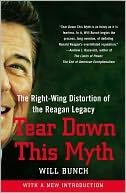A BUNCH OF EVERLASTINGS
OR
TEXTS THAT MADE HISTORY
A VOLUME OF SERMONS
Frank W. BOREHAM
Published by Left of Brain Books
Copyright 2021 Left of Brain Books
ISBN 978-1-396-31908-2
eBook Edition
All rights reserved. No part of this publication may be reproduced, distributed, or transmitted in any form or by any means, including photocopying, recording, or other electronic or mechanical methods, without the prior written permission of the publisher, except in the case of brief quotations embodied in critical reviews and certain other noncommercial uses permitted by copyright law. Left of Brain Books is a division of Left of Brain Onboarding Pty Ltd.
Table of Contents
By Way of Introduction
Five and twenty years ago to-night I was solemnly ordained a minister of the everlasting gospel. A medley of most romantic circumstances conspired to fix indelibly upon my mind the profound impressions then created. I was a total stranger on this side of the planet: I had only landed in New Zealand a few hours before. Yet here I was among a people who were pleased to recognise in me their first minister! Trembling under the consciousness of my boyish inexperience, and shuddering under the awful burden imposed upon me by the Ordination Charge, I felt that life had suddenly become tremendous. I was doing business in deep waters! As a recognition of the goodness and mercy that have followed me all the days of my ministerial life, I desire, with inexpressible thankfulness, to send forth this Bunch of Everlastings.
FRANK W. BOREHAM.
ARMADALE, MELBOURNE, AUSTRALIA.
March 15th, 1920.
I. Thomas Chalmers Text
I
It was a mystery. Nobody in Kilmany could understand it. They were people of the flock and the field, men of the plough and the pasture. There were only about one hundred and fifty families scattered across the parish, and such social life as they enjoyed all circled round the kirk. They were all very fond of their young minister, and very proud of his distinguished academic attainments. Already, in his preaching, there were hints of that sublime thunder that afterwards rolled through the world. In his later years it was said of him that Scotland shuddered beneath his billowy eloquence as a cathedral vibrates to the deep notes of the organ. He became, as Lord Rosebery has testified, the most illustrious Scotsman since John Knox. But his farmer-folk at Kilmany could not be expected to foresee all this. They felt that their minister was no ordinary man; yet there was one thing about him that puzzled every member of the congregation. The drovers talked of it as they met each other on the long and lonely roads; the women discussed it as they waited outside the kirk whilst their husbands harnessed up the horses; the farmers themselves referred to it wonderingly when they talked things over in the stockyards and the market-place. Mr. Chalmers was only twenty-three. He had matriculated at twelve; had become a divinity student at fifteen; and at nineteen had been licensed to preach. Now that, with much fear and trembling, he had settled at Kilmany, he made a really excellent minister. He has himself told us that, as he rode about his parish, his affections flew before him. He loved to get to the firesides of the people, and he won from old and young their unstinted admiration, their confidence and their love. But for all that, the mystery remained. Briefly stated, it was this: Why did he persist in preaching to these decent, well-meaning and law-abiding Scottish farmers in a strain that implied that they ought all to be in gaol? Why, Sabbath after Sabbath, did he thunder at them concerning the heinous wickedness of theft, of murder, and of adultery? After a hard weeks work in field and stable, byre and dairy, these sturdy Scotsmen drove to the kirk at the sound of the Sabbath bell, only to find themselves rated by the minister as though they had spent the week in open shame! They filed into their family pews with their wives and their sons and their daughters, and were straightway charged with all the crimes in the calendar! Later on, the minister himself saw both the absurdity and the pity of it. It was, as he told the good people of Kilmany, part of his bitter self-reproach that, for the greater part of the time he spent among them, I could expatiate only on the meanness of dishonesty, on the villany of falsehood, on the despicable arts of calumny, in a word, upon all those deformities of character which awaken the natural indignation of the human heart against the pests and disturbers of human society. Now and again, the brilliant and eloquent young preacher turned aside from this line of things in order to denounce the designs of Napoleon. But as the Fifeshire farmers saw no way in which the arguments of their minister were likely to come under the notice of the tyrant and turn him from his fell purpose of invading Britain, they were as much perplexed by these sermons as by the others. This kind of thing continued without a break from 1803 until 1811; and the parish stood bewildered.
II
From 1803 until 1811! But what of the four years that followed? For he remained at Kilmany until 1815the year of Waterloo! Let me set a second picture beside the one I have already painted! Could any contrast be greater? The people were bewildered before: they were even more bewildered now! The minister was another man: the kirk was another place! During those closing years at Kilmany, Mr. Chalmers thundered against the grosser crimes no more. He never again held forth from his pulpit against the iniquities of the Napoleonic programme. But every Sunday he had something fresh to say about the love of God, about the Cross of Christ, and about the way of salvation. Every Sunday he urged his people with tears to repent, to believe, and to enter into life everlasting. Every Sunday he set before them the beauty of the Christian life, and, by all the arts of eloquent persuasion, endeavoured to lead his people into it. He would bend over the pulpit, writes one who heard him both before and after the change, he would bend over the pulpit and press us to take the gift, as if he held it that moment in his hand and would not be satisfied till every one of us had got possession of it. And often, when the sermon was over, and the psalm was sung, and he rose to pronounce the blessing, he would break out afresh with some new entreaty, unwilling to let us go until he had made one more effort to persuade us to accept it. Now here are the two pictures side by sidethe picture of Chalmers during his first eight years at Kilmany, and the picture of Chalmers during his last four years there! The question is: What happened in 1811 to bring about the change?
III
That is the question; and the answer, bluntly stated, is that, in 1811, Chalmers was converted! He made a startling discoverythe most sensational discovery that any man ever made. He had occupied all the years of his ministry on the Ten Commandments; he now discovered, not only that there are more commandments than ten, but that the greatest commandments of all are not to be found among the ten! The experience of Chalmers resembles in many respects the experience of the Marquis of Lossie. Readers of George Macdonalds Malcolm will never forget the chapter on The Marquis and the Schoolmaster. The dying marquis sends for the devout schoolmaster, Mr. Graham. The schoolmaster knows his man, and goes cautiously to work.














